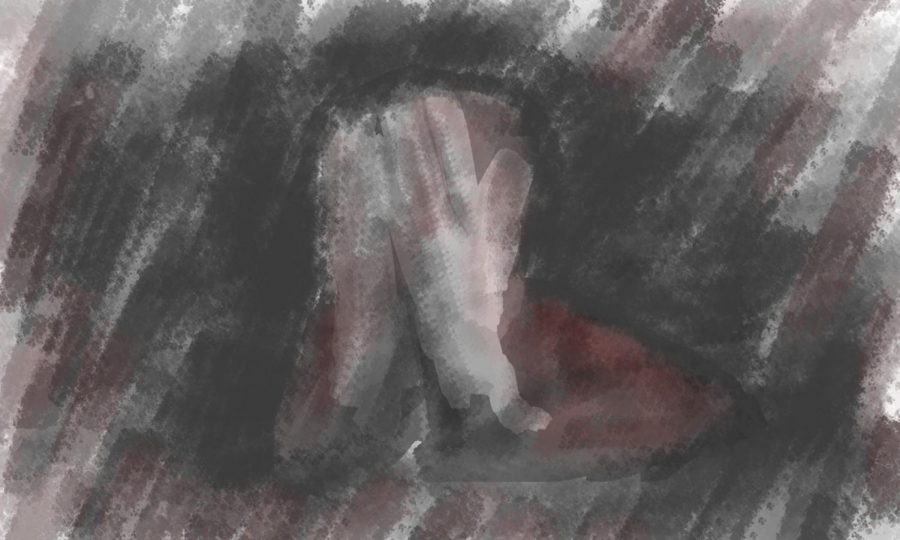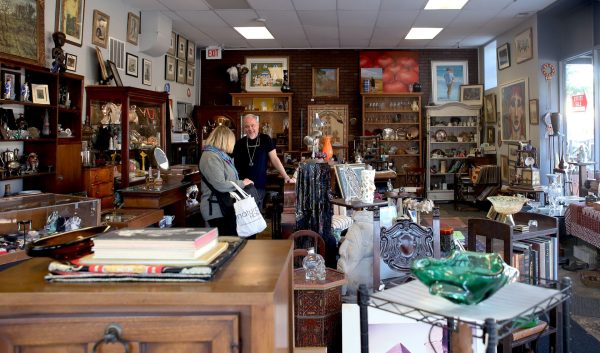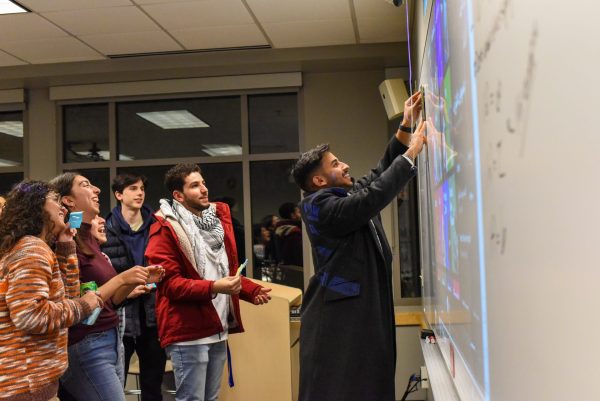Fight or Fright: Controlled fear allows students to experience adrenaline rush
Credit: Alicia Goluszka
Why do people like to be scared? It’s the tingle on the back of someone’s neck, the tensing of muscles, the held-in shriek all while peeking at the screen through the slits between their fingers—it’s the feeling of being afraid, and, for some reason, people love it.
Halloween is the perfect time to plunge into controlled fear. For many, the whole month is dedicated to seeking out activities that will put them in a terrified trance, from Ouija boards to haunted houses and horror movies. Even when fear has a firm grasp on life already, whether it be in a global pandemic or the impending doom of climate crises, there remains a deep desire in humanity to be scared.
“Some psychologists call this a form of ‘benign masochism,’” psychology professor Linda Camras said. “It’s an opportunity to demonstrate their ability to master [or] regulate their emotional responses. It’s like a form of practice play.”
Benign masochism is a term first coined by Paul Rozin, a psychology professor at the University of Pennsylvania, to explain humans perceive no real threat during sensations of fear, instead they actually enjoy these negative feelings. When someone “plays” with fear while fully reassured that no harm will come to them, it is easier to identify the ways they may react if a similar situation, with “real” threat, were to occur.
DePaul alumnus Jacob Reno said he seeks out scary movies, haunted houses and rollercoasters any time he can. He said he even wants to try skydiving at least once in his lifetime. Reno said he loves to do things that bring him fear because he finds pleasure and a sense of adrenaline rush in trying these activities.
“It’s the sense of controlled chaos,” Reno said. “My body is able to experience these feelings in a controlled, safe way, granting me a fuller life experience. It’s not exactly trying to instill myself with fear, it’s that I get to live to tell the tale.”
Many enjoy the feeling of elation that occurs directly following a controlled fear setting, partly due to pride in having successfully “survived” a fearful experience, and also due to chemicals released in the brain during and after these fearful events.
Psychologist Christopher Dwyer said during fearful experiences, people experience a rush of adrenaline and a release of endorphins and dopamine, which can result in a “pleasure-filled, opioid-like” euphoria. Hence, the overall positive association many people attribute to feeling fear.
Junior Fabricio Navarro said feeling fear serves as a distraction from the rest of life. He said he agrees with Rozin’s explanation of benign masochism and the concept of fear in controlled environments is an outlet of practice play, but he said his admiration of fear is rooted in finding a more thrilling way to live life.
“Life is so incredibly monotonous,” Navarro said. “Fear is one of the emotions that’s hardest to control and hardest to master. Maybe [fear is] the only thing that reminds us of being wild animals.”
Though many people agree with Navarro, there is a sense to life where there is already too much fear. This is applicable to everyone’s life as of late, especially with most people experiencing a global pandemic for the first time ever, as well as surviving in an age where climate change is more relevant as the days go on. Fear exists everywhere, especially now. People have been terrified to be near their loved ones, to live in areas where the land is sinking, to live in a country where corrupt leaders endanger families and also fear leaving because immigrating, especially illegally, can harm them even more.
Realistically, currently and over the past two years, people have feared a lot in their daily life, no matter how continuous and repetitive their life may seem or seemed in the past. Alternatively, to avoid feeling the effects of modern day fears, most instilled by COVID-19, people can give into controlled fears like going to haunted houses and watching horror and thriller movies. And while giving into these fearful experiences may seem counterintuitive, encountering controlled fears can help people see the false threats of clowns, jumping out of a plane and fake axe murderers rather than the eerie realistic threats of dying from a virus, their house being flooded or seeing their loved ones get deported because of an illegal immigrant status.












